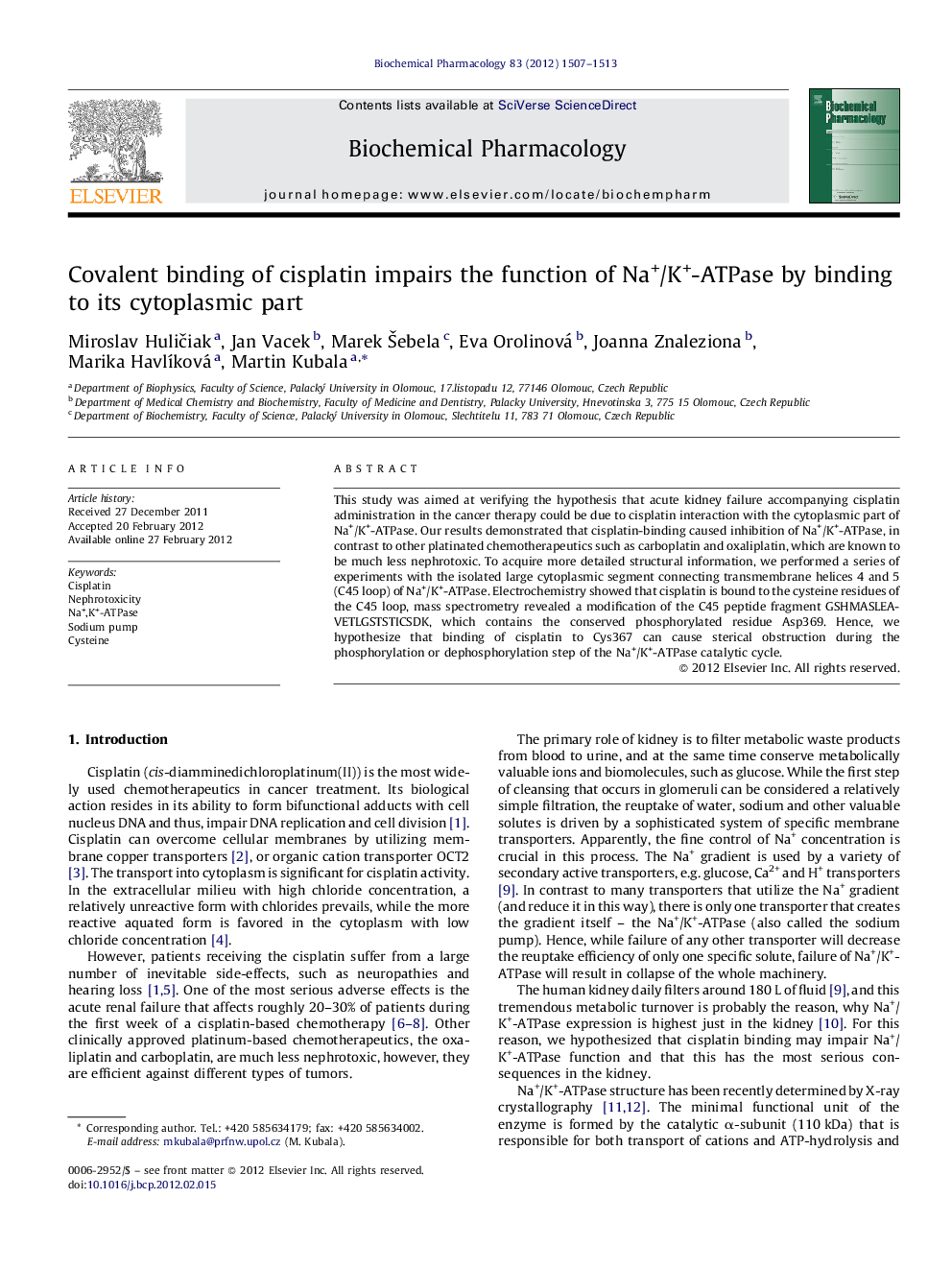| Article ID | Journal | Published Year | Pages | File Type |
|---|---|---|---|---|
| 2513375 | Biochemical Pharmacology | 2012 | 7 Pages |
This study was aimed at verifying the hypothesis that acute kidney failure accompanying cisplatin administration in the cancer therapy could be due to cisplatin interaction with the cytoplasmic part of Na+/K+-ATPase. Our results demonstrated that cisplatin-binding caused inhibition of Na+/K+-ATPase, in contrast to other platinated chemotherapeutics such as carboplatin and oxaliplatin, which are known to be much less nephrotoxic. To acquire more detailed structural information, we performed a series of experiments with the isolated large cytoplasmic segment connecting transmembrane helices 4 and 5 (C45 loop) of Na+/K+-ATPase. Electrochemistry showed that cisplatin is bound to the cysteine residues of the C45 loop, mass spectrometry revealed a modification of the C45 peptide fragment GSHMASLEAVETLGSTSTICSDK, which contains the conserved phosphorylated residue Asp369. Hence, we hypothesize that binding of cisplatin to Cys367 can cause sterical obstruction during the phosphorylation or dephosphorylation step of the Na+/K+-ATPase catalytic cycle.
Graphical abstractWe demonstrate that cisplatin, which exhibits nephrotoxicity, inhibits Na+/K+-ATPase, while the other less-nephrotoxic drugs do not. We propose that it is a consequence of cisplatin binding to the Cys367 near the phosphorylation site at Asp369.Figure optionsDownload full-size imageDownload as PowerPoint slide
